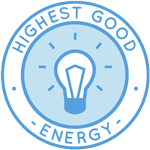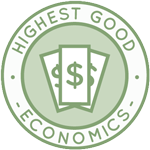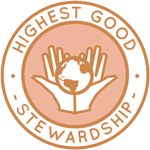Building DIY Sustainable Eco-villages – One Community Weekly Progress Update #390
One Community is about building DIY sustainable eco-villages that provide a better, healthier, and more enriching living experience. Our open source and free-shared designs include sustainable and “Highest Good” approaches to food, energy, housing, education, for-profit and non-profit economic design, social architecture, fulfilled living, global stewardship practices, and more. Our goal is to demonstrate these villages as teacher/demonstration hubs that are easy enough, affordable enough, and enjoyable enough to live in so that they spread on their own.
- Here’s our project overview
- Here’s our world-change methodology
- Here’s how this becomes self-replicating
- Here’s how we are open source and free-sharing all the do-it-yourself designs

OUR MAIN OPEN SOURCE HUBS
Click on each icon to be taken to the corresponding Highest Good hub page.
One Community’s physical location will forward this movement as the first of many self-replicating teacher/demonstration communities, villages, and cities to be built around the world. This is the September 13th, 2020 edition (#390) of our weekly progress update detailing our team’s development and accomplishments:
Building DIY Sustainable Eco-villages
One Community Progress Update #390
DONATE | COLLABORATE | HELP WITH LARGE-SCALE FUNDING
CLICK HERE IF YOU’D LIKE TO RECEIVE AN EMAIL EACH WEEK WHEN WE RELEASE A NEW UPDATE
YOU CAN ALSO JOIN US THROUGH SOCIAL MEDIA
ONE COMMUNITY WEEKLY UPDATE DETAILS
HIGHEST GOOD HOUSING PROGRESS
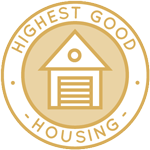 One Community is building DIY sustainable eco-villages through Highest Good housing that is artistic and beautiful, more affordable, more space efficient, lasts longer, DIY buildable, and constructed with healthy and sustainable materials:
One Community is building DIY sustainable eco-villages through Highest Good housing that is artistic and beautiful, more affordable, more space efficient, lasts longer, DIY buildable, and constructed with healthy and sustainable materials:
- Learn about how it relates to building DIY sustainable eco-villages: Our Upcoming Crowdfunding Campaign
- Learn about the different village models on building DIY sustainable eco-villages: 7 Sustainable Village Models
- Visit the open source portals for the first two: Earthbag Village OS Hub | Straw Bale Village OS Hub
This week the core team continued review and development of our behind-the-scenes Sustainable Site Selection, Planning, and Preparation content. We focused on working through page 30 on our materials doc with upgrades, research and edits and researching and sourcing electrical meters and bases to include a meter that has immediate visual reference to determine if meter is working with a combination of digital and dial readouts.
Dean Scholz (Architectural Designer) continued helping with the Earthbag Village (Pod 1) 4-dome cluster designs. This week was week #199 of Dean’s work and the focus was color corrections, learning a new way to put in a background, and testing the perspectives we’ll use for the final external renders. See below for pictures on how this relates to building DIY sustainable eco-villages
Alvaro Hernández (Open Source Tech Consultant, Developer) completed his 23rd week as a member of the team. This week Alvaro finished developing the “Best Small and Large-scale Community Clothing Recycling, Reuse, and Repurposing Options” tutorial and submitted it for final review. He also began working on the Hydro Energy Setup and Maintenance tutorial by changing the format of certain parts of the text and testing out some of the previews replace rules and coding some new ones. Here are some images related to this work on building DIY sustainable eco-villages.
Jose Luis Flores (Mechanical Engineer) completed his 7th week helping finish the Net-zero Bathroom component of the Earthbag Village. This week Jose Luis analyzed and modified the roof of the Net-Zero Bathroom focusing on the funnel support frame and the roof access support frame. He calculated the deflection ratio of the support beams used in the frames to be certain they would withstand the weight of the funnel, interior roof panels and roof access frame. He also began reorganizing and adding more information to the Net-Zero Bathroom Cost Analysis and Material spreadsheet. Pictures are below for this work on building DIY sustainable eco-villages.
Stacey Maillet (Graphic Designer) also completed her 6th week working on the final edits and revisions to the Murphy bed instructions. This week Stacey focused on the Wall section and construction, finalizing all of the wood prep boards and how they are cut. She also added measurements to the floor layout and placement of pieces. Pictures of some of this work are below on building DIY sustainable eco-villages.

Focused on the Wall Section and Construction, Finalizing All of the Wood Prep Boards – Click for Page
Hannah Copeman (Structural Engineer) also completed her 4th week helping complete all the Earthbag Village tutorials. This week Hannah continued the development of the remaining tutorials for publication by taking notes on more Bioveda course videos for earthbag and aircrete dome construction. She focused on several topics such as the construction of the walls, sculpting walls around doors and windows, interweaving the tensile structure for outer force and sculpting the upper levels of the dome. You can see some screenshots of this work below on building DIY sustainable eco-villages.
DUPLICABLE CITY CENTER PROGRESS
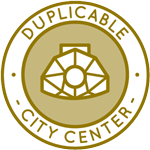 One Community is building DIY sustainable eco-villages through a Duplicable and Sustainable City Center that is LEED Platinum certified/Sustainable, can feed 200 people at a time, provide laundry for over 300 people, is beautiful, spacious, and saves resources, money, and space:
One Community is building DIY sustainable eco-villages through a Duplicable and Sustainable City Center that is LEED Platinum certified/Sustainable, can feed 200 people at a time, provide laundry for over 300 people, is beautiful, spacious, and saves resources, money, and space:
- Learn about this building and it’s function on building DIY sustainable eco-villages: Duplicable City Center Open Source Hub
This week Angela Mao (Sustainability Researcher) completed her 15th week as a member of the team and working on content for the Most Sustainable Lightbulbs and Light Bulb Companies tutorial. This week Angela found several helpful videos that informed the reader about sustainable light bulbs. Additionally, she reordered her sustainable lightbulb company ranking after further research into each company. Finally, she made overall edits to her tutorial and now needs to complete just her FAQ and Resources Section. You can see some of this work in the pictures below on building DIY sustainable eco-villages.
Ashish Hirani (Fire Protection Engineer) also completed his 9th week working on the City Center Sprinkler and Emergency Lighting Design. This week Ashish described in detail the components for the mains converted emergency lighting system. He described the conversion kit in detail and also defined the working of its components. He formatted the existing general lighting layout plan drawings to include the exit and emergency lighting layer and identified locations for the exit lights for different zones on the first floor. You can see some of the results of this work below onbuilding DIY sustainable eco-villages.
HIGHEST GOOD FOOD PROGRESS
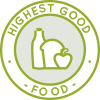 One Community is building DIY sustainable eco-villages through Highest Good food that is more diverse, more nutritious, locally grown and sustainable, and part of our open source botanical garden model to support and share bio-diversity:
One Community is building DIY sustainable eco-villages through Highest Good food that is more diverse, more nutritious, locally grown and sustainable, and part of our open source botanical garden model to support and share bio-diversity:
- Learn about the structures onbuilding DIY sustainable eco-villages: Hoop House Hub | Aquapini & Walipini Open Source Hub
- See what we’ll be growing with building DIY sustainable eco-villages: Gardens & Hoop Houses | Large-scale Structures | Food Forest | TA
HIGHEST GOOD EDUCATION PROGRESS
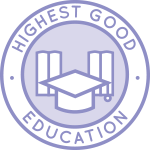 One Community is building DIY sustainable eco-villages through Highest Good education that is for all ages, applicable in any environment, adaptable to individual needs, far exceeds traditional education standards, and more fun for both the teachers and the students. This component of One Community is about 95% complete with only the Open Source School Licensing and Ultimate Classroom construction and assembly details remaining to be finished. With over 8 years of work invested in the process, the sections below are all complete until we move onto the property and continue the development and open sourcing process with teachers and students – a development process that is built directly into the structure of the education program and everything else we’re creating too:
One Community is building DIY sustainable eco-villages through Highest Good education that is for all ages, applicable in any environment, adaptable to individual needs, far exceeds traditional education standards, and more fun for both the teachers and the students. This component of One Community is about 95% complete with only the Open Source School Licensing and Ultimate Classroom construction and assembly details remaining to be finished. With over 8 years of work invested in the process, the sections below are all complete until we move onto the property and continue the development and open sourcing process with teachers and students – a development process that is built directly into the structure of the education program and everything else we’re creating too:
- Program Overview: Education Open Source Hub
- How the components work together: How to use the Education for Life Program
- Lesson Plans for Life – Lesson Plans How-to
- Foundations of Outstanding Leaders, Teachers, and Communicators
- Curriculum for Life
- Teaching Strategies for Life
- Learning Tools and Toys for Life
- Evaluation and Evolution
This week Xiaolu Song (Landscape Designer) completed her 12th week working on the playground and other external details of the Ultimate Classroom. This week Xiaolu finished the first draft of all of the external playground details and began to render the walkthrough in Lumion. The picture below is of the video 120 hours into the render process and still with 10 hours to go. The total length of this video she is rendering is 2 min and 22 seconds. See below for pictures on how this relates to building DIY sustainable eco-villages
Shuwei Liu (Landscape Designer) also completed her 11th week working on the playground and other external details of the Ultimate Classroom. This week Shuwei focused on the indoor Lumion details and rendered the first complete walkthrough of this area. You can see some screenshots of this work-in-progress below on building DIY sustainable eco-villages.
HIGHEST GOOD SOCIETY PROGRESS
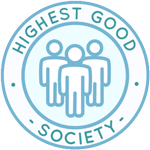 One Community is building DIY sustainable eco-villages through a Highest Good society approach to living that is founded on fulfilled living, the study of meeting human needs, Community, and making a difference in the world:
One Community is building DIY sustainable eco-villages through a Highest Good society approach to living that is founded on fulfilled living, the study of meeting human needs, Community, and making a difference in the world:
- Read the Highest Good society overview and on how this relates to building DIY sustainable eco-villages: Highest Good Society
- Learn about the model for fulfilled living and sharing: A Day in the Life
- Learn about the 4 economic models: RBE | For-profit | Non-profit | Entrepreneurship
- Learn about our open source community collaboration and management software: The Highest Good Network
This week the core team continued behind-the-scenes updating of the Consensus and Groups of 200+. This week we worked out additional details of applying consensus at a large scale, and finalized a table summarizing the functions and sizes of the groups that make up the consensus structure. We also began reviewing and doing additional research for how we’ll handle non-recyclable waste on the property. Pictures of some of this work can be seen below onbuilding DIY sustainable eco-villages.
Henry Nguyen (React Developer) completed his 31st week with the team and working on the Highest Good Network software. This week he spent his time solving conflicts, fixing bugs to get ready for the live launch and testing. There were many conflicts and problems because we haven’t merged the codes to the development branch for a long time. There were more conflicts than he expected. However, all conflicts were solved and it is now ready for us to test all the features. Pictures below show some of this behind-the-scenes work on building DIY sustainable eco-villages.
Ross Edwards (Chief Imagination Officer, G3) completed his 21st week helping promote One Community. Ross is someone who found our project, loved what we are doing, and offered to just help contact people he (and we) thought might be interested in what we’re doing. This week’s focus was promoting our project and the One Community helping page to newspapers. You can see below this last week’s list of who he contacted and a version of the press release he is sharing and how this relates to building DIY sustainable eco-villages.
Andon Ignatov (Full-stack Developer) completed his 17th week working on the Highest Good Network software. This week Andon worked on fixing the countdown timer digits display for Mac OS based browsers. He also designed a mockup of the Notification/Activity bar for the dashboard. Another major thing he did this week is converted the Weekly Summary section to be viewed in a popup. With that, he moved the countdown-timer to the dashboard area so it’s visible all the time and serves as a link/button to open/edit the Weekly Summary. You can see screenshots of some of this work below on building DIY sustainable eco-villages.
Wen Zhang (Software Engineer) completed her 16th week as a volunteer working on the Highest Good Network software. This week Wen merged updates on her local machine and solved a few conflicts and then focused on CSS tuning. This is making it so, when hovering on the badge images, a description box of the badge pops up. Some pictures of this work are below on building DIY sustainable eco-villages.
Adam Capdevill (Software Engineer) completed his 12th week working on the Highest Good Network software. Adam fixed merge conflicts and submitted his PR. By the end of the week Adam was able to wrap up his PR for his module with the help of Chris Weilacker’s review and comments. Once Adam was finished, he resumed studying Unit Testing in React. You can see pictures of some of this behind-the-scenes work below on how this relates to building DIY sustainable eco-villages.
TEKtalent Inc. (a custom programming solutions company) also continued with their 15th week helping with the Highest Good Network software. This week Nithesh and the TEK talent team were working on the suggestions, corrections and validations of the team functionality. The PR has been raised and merged with the changes in user profile and all the conflicts have been resolved. Along with that they resumed the Azure migration task for the React app and successfully deployed it in Azure. You can see some of this work below onbuilding DIY sustainable eco-villages.
Yiqi Feng (Software Engineer) continued with her 10th week as a member of the Highest Good Network software team. This week Yiqi added the exact number in the reminder when editing time more than 5 times. She also implemented and tested the email sending and infringement function. She fixed a bug and changed the initial status of the number of words and variable has_link to avoid mistakes. She checked the code, solved the conflicts and made a pull request. You can see some of this work below on building DIY sustainable eco-villages.
Jerry Zhang (Software Engineer) also completed his 5th week working on the Highest Good Network software. This week Jerry added an additional route to API for tasks. This will allow querying of all tasks each member is assigned to. With this in place, Jerry will work to deliver a basic version of WBS 2.1 and 2.2 by the end of this week. Pictures of some of this are below on building DIY sustainable eco-villages.
Noor Qureshi (Insurance Researcher) completed her 5th week helping research One Community’s insurance options. This week Noor refined the insurance research spreadsheet to present the information in a more concise and clear way. She also started creating a cost-benefit analysis of Molina Healthcare and the best option for that healthcare plan. She used the information from the spreadsheet to compare the different options from Molina Healthcare and created a table to help layout those differences. You can see some of this work below onbuilding DIY sustainable eco-villages.
Chris Weilacker (Software Engineer) completed his 4th week working on the Highest Good Network software. This Week Chris managed 4 or 5 large pull requests coming in at the same time. He has approved 3 pull requests and is waiting on changes for another two pull requests. You can see some of the code for Chris’ work below on how this relates to building DIY sustainable eco-villages.
AND WE PRODUCED THIS WEEKLY UPDATES BLOG – CLICK HERE TO SUBSCRIBE
FOLLOW ONE COMMUNITY’S PROGRESS (click icons for our pages)
INVESTOR PAGES
GET INVOLVED
DONATE | WAYS ANYONE CAN HELP | MEMBERSHIP
CLICK HERE FOR ALL PAST UPDATES
 One Community
One Community